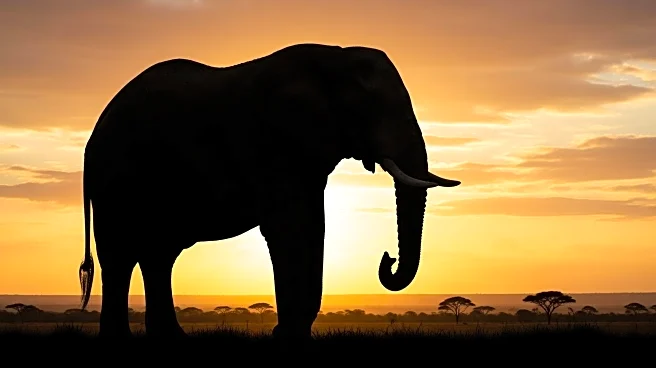What's Happening?
Peter Mutharika, aged 85, has been sworn in for a second term as Malawi's president, making him Africa's second-oldest sitting head of state. His return to power follows a previous presidency from 2014 to 2020, which ended when his re-election was overturned by the courts. Mutharika won the recent election with 56% of the vote, defeating incumbent Lazarus Chakwera. His inauguration in Lilongwe marks a significant political comeback, reflecting both nostalgia and concerns about leadership in old age. Mutharika's age places him just behind Cameroon’s Paul Biya, aged 92, in the hierarchy of Africa's oldest leaders.
Why It's Important?
Mutharika's return to power underscores the persistence of personality-driven politics in Africa and highlights public dissatisfaction with economic stagnation and corruption under previous administrations. His leadership is seen as a potential stabilizing force for Malawi's struggling economy, which faces challenges such as inflation, fuel shortages, and climate-related food security issues. However, his advanced age raises questions about his ability to provide long-term vision and energy needed for effective governance. This development also revives debates about the balance between experience and the need for political renewal in Africa.
What's Next?
Mutharika's presidency will likely focus on addressing economic challenges and restoring public confidence. Observers will be watching how he navigates the tension between maintaining stability and introducing necessary reforms. His leadership could influence broader discussions on governance and leadership renewal across Africa, as other nations grapple with similar issues of aging leadership and the need for generational change.
Beyond the Headlines
Mutharika's return highlights a broader pattern of gerontocracy in African politics, where older leaders dominate the political landscape. This trend raises questions about the inclusivity of younger voices and the potential for political innovation. The situation in Malawi may serve as a case study for other African nations facing similar leadership dynamics.









